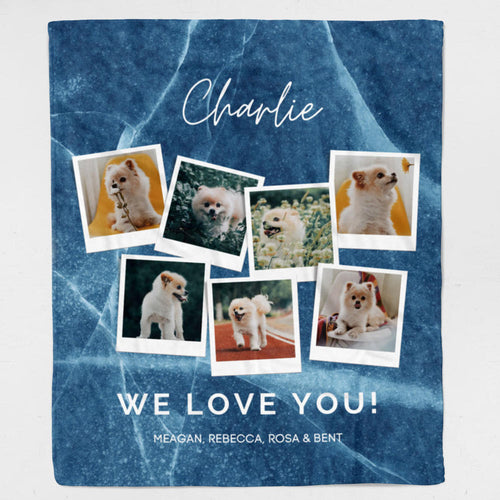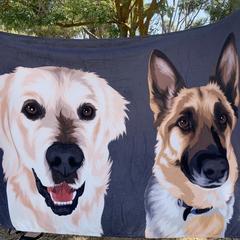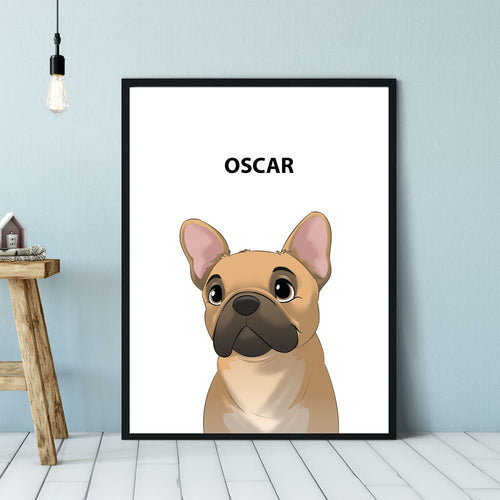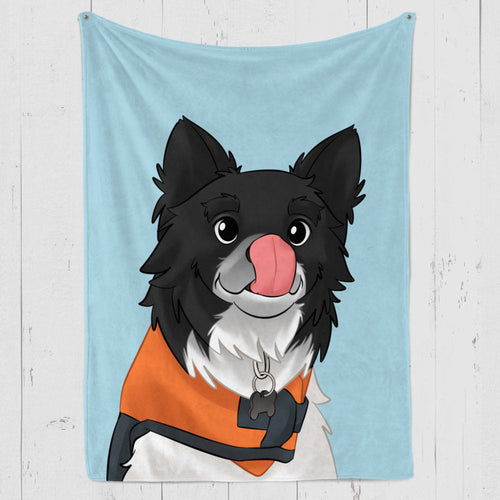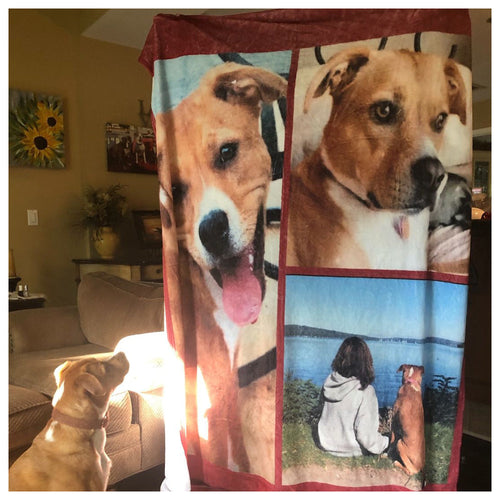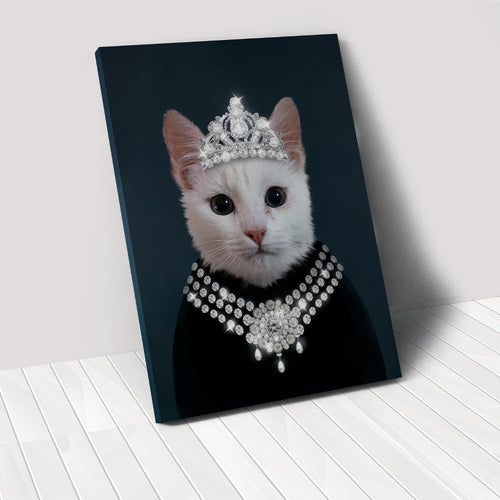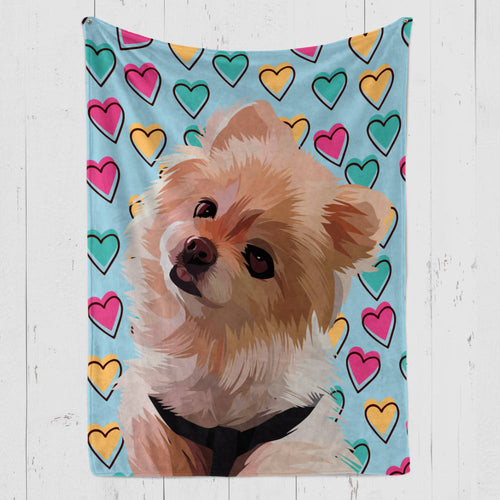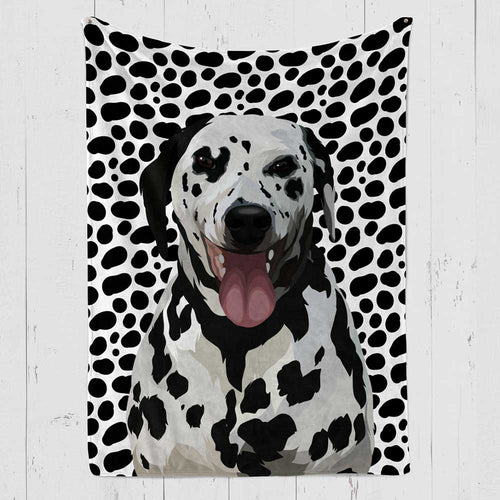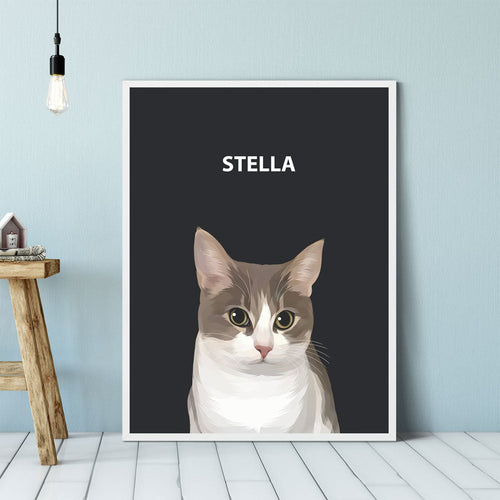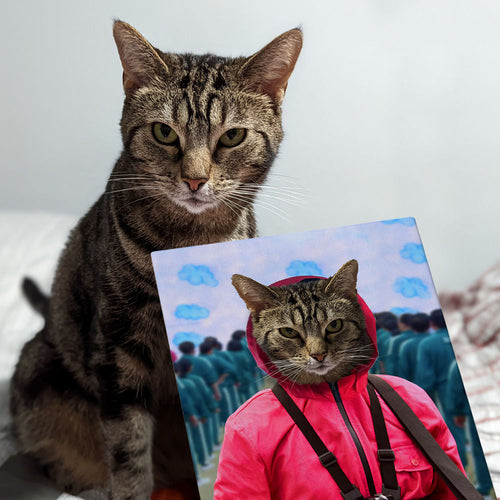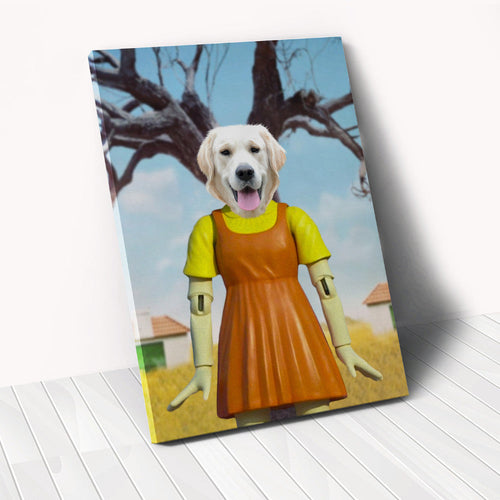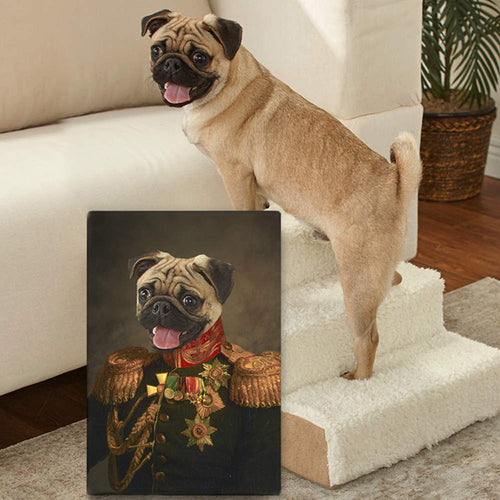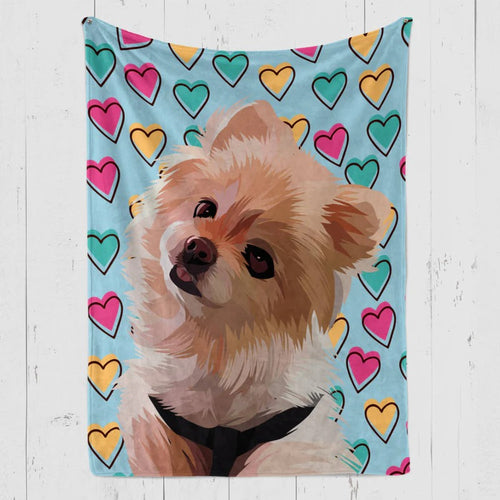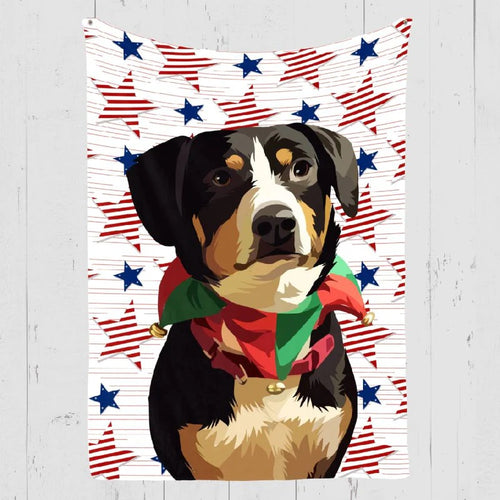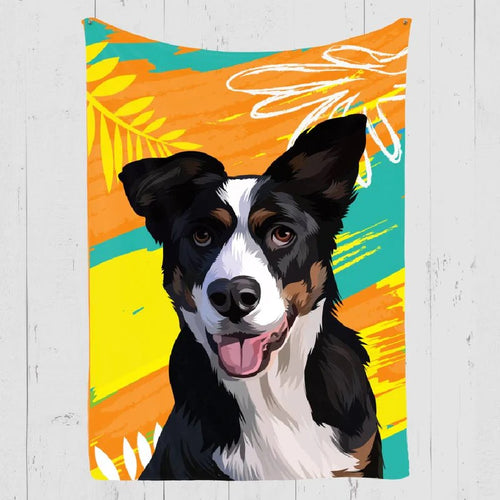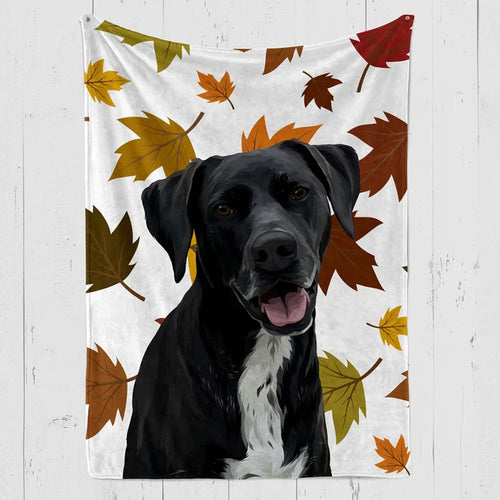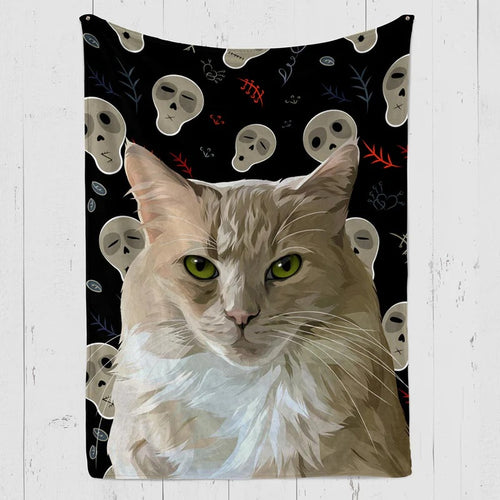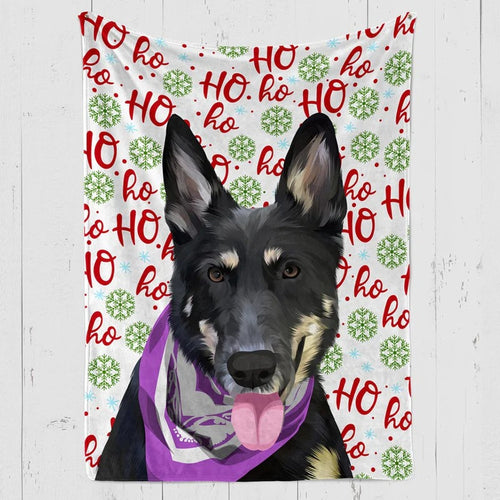
Licking is an instinctual encouragement in dogs. Yet, a few pet guardians view their dog's habitual licking as stressful. Many pet owners are perplexed about the reason behind their dog's bizarre behaviour.
Now, why do dogs, then, lick blankets? Your dog may be licking blankets for various reasons, including boredom, anxiety, dietary issues, medical conditions, deficiencies in minerals or vitamins, or simply out of habit. Take your dog to the vet if you are concerned that they are constantly licking their blankets.
Reasons Why Dogs Lick Blankets?
Dogs do indeed lick blankets, but dogs also lick everything else. They only begin to lick something obsessively when a severe problem can cause concern. However, you do not have an obvious explanation to stress. Continue reading to learn why your dog enjoys licking your blanket and the steps you can take to stop your dog from acting strangely.
There are many motivations behind why canines lick covers. It could be because of problems with the teeth, the adrenals (kidneys), or the gastrointestinal system. It could be because they experience the ill effects of nervousness, tactile reasons, or food particles on the cover.
Even though it's intriguing for this licking conduct to result from a clinical explanation directly, it is not at all impossible. Furthermore, having your canine examined by a doctor is the most effective way to preclude any clinical causes like the ones beneath.
1. Gastrointestinal Problems
If your dog has a digestive problem, it may lick blankets to get rid of the nausea and discomfort that usually comes with gastrointestinal problems. Endorphins, a natural painkiller, are released when a dog licks something.
Therefore, taking your dog to a veterinarian for a diagnosis is your best option if you suspect they are licking because of a digestive issue. Your dog will also lick blankets when they feel sick to make themselves vomit or to get away from the unpleasant nausea they are experiencing.
2. Dental Problems
Dogs who are experiencing dental issues might lick in the air as well as blankets.
They might suffer from a toothache, mouth ulcer, or wound or have something painful lodged in their mouth. Other symptoms to look out for, if it’s a dental root cause, are excessive drooling, whining, difficulty heading, or reduced appetite. If you can, you can inspect their mouth yourself to check if they have any oral issues. But to be on the safe side, a visit to the vet is your best bet.
3. Anxiety
It's essential to track when and how often your dog licks blankets to see if it's anxiety. A dog may experience anxiety if they are overstimulated, surrounded by a person they dislike, or are aware that you are about to leave.
As referenced above, licking is a way for canines to self-mitigate, so it's a usual way for them to assist with quieting themselves if they're overpowered or are around somebody they detest/are unfortunate. Your dog may be experiencing separation anxiety if you observe them beginning to lick as you prepare to leave the house. This will probably be the situation if they just lick covers while you're out of the house.
Addressing this restless licking is critical, as it can become an obsessive-compulsive disorder (OCD). A sign that they have OCD is their powerlessness to quit licking even after telling them to stop. Boredom can sometimes lead to OCD which can ultimately lead to constant licking.
An unmotivated dog will do anything to keep itself occupied. Although licking blankets helps keep their minds and bodies active, it may appear like an odd choice.
4. Sensory Motives
If your dog is only licking the blankets you use, it could be because they like the scent you leave behind. This will be especially self-evident, assuming they pick up your sweeping while you're out of the house. It is a common choice for anxious dogs because their scent will remind them of your safety and calm.
They could lick covers due to their flavour. It may be a weak taste of sweat or dead skin cells. This seems like an obnoxious inclination, yet canines can taste the salt in these particles. Assuming they lick covers for tactile reasons, you'll have the option to see their disinterest after you've washed them. They will only continue to lick it once you use it again because it no longer tastes or smells good.
5. Food Left Behind
While having food or snacks, it's not uncommon for people to wrap themselves in a blanket. Food particles will fall and get stuck in the blanket's fibres, no matter how careful you are. Dogs prefer human food to dog food, possibly due to dietary restrictions. If your dog has nutritional deficiencies or has recently changed their diet, it will do anything to compensate for it.
6. Problems with Diet
The digestive systems of many dog breeds are compromised. Therefore, excessive blanket licking by your dog is not a compulsive behaviour; it may be a sign of stomach pain or nausea. The majority of dogs are allergic to soy, wheat, and corn. However, grains are used as a filler in most dog food brands. Therefore, excessive licking will result if you feed your pet something to which it might be allergic. Another explanation your canine might be licking arbitrary articles or surfaces past what I have depicted is gastrointestinal issues.
By causing their minds to focus on something else, randomly licking things can help alleviate some of the pain. The solution for an irritated stomach isn't a home cure. Consult your veterinarian first, then gradually alter your dog's diet. When your pet has a weak stomach, you must only use organic, non-GMO, and grain-free products.
7. Nausea
When your dog licks too much, one of the main reasons could be nausea. To settle their stomachs, they sit and lick the air. Suppose you've ever felt the urge to vomit and felt your mouth water; you know how awful it is. They can stay engaged and distracted, thanks to this. Canines hate to hurl, which is why they will make a valiant effort to find a movement when it seems like they could vomit. Additionally, they might be doing this to get rid of the excess saliva that comes out just before they start to vomit. This kind of licking has less to do with medicine and more to do with intuition.
You may be shocked, but dogs sometimes lick a sweep when they feel sickened. They might also exhibit this behaviour toward the couch or other nearby furniture. You need to look into their diet and see if you can make any changes to help the poor dog if they do this more often than they should. If your dog exhibits this behaviour after eating, their diet may be to blame. It might be time to alter the diet of your dog.
8. Other Likely Reasons
Different purposes behind this licking conduct are incidentally compensating them, or it helps scratch an itch. You may be incidentally remunerating your dog when they lick a cover.
You might give them toys, treats, or your attention to stop them from licking. Yet, this coincidentally prepares your canine to continue to lick so they'll get their prize. Depending on the material, your dog might be licking the material to relieve an itchy spot. Your dog will need more traction from the added moisture to scratch.
How can a dog be prevented from licking a blanket?
Preventing your dog from licking a sweeping is not a messy cycle however takes some consistency and time. It is best to consult a veterinarian and a dog behaviourist if there is a medical reason for it or if your attempts at training have failed. Even though it may appear to be a harmless habit, it is a behaviour that needs to be stopped because it may eventually lead to chewing or tearing your blankets. Some of the other ways you can prevent them from licking blankets include:
1. Check Their Diet
If you've recently changed your dog's food, make sure it's the right amount of nutrients for their age, size, and breed. A veterinarian can help determine if your dog is deficient in nutrients or has any food allergies. Assuming that is the situation, change their food bit by bit or add supplement enhancements to their food, and this ought to determine their sweeping licking.
Meanwhile, you can put your blankets in a box safe for dogs or hang them high out of your dog's reach naturally; that will prevent your dog from cover licking and save your covers from being torn or bitten.
2. Distract them
Give them Licking toys they like, which will help them channel their desire.
To keep your dog's mind active, you can give them a variety of toys, bones, and puzzle games. Toys like riddle feeders are a great decision for this situation, and your dog will be tested to get every one of their treats out of the feeder.
The Leave It Command is also a handy command that can be used to control any undesirable behaviour. Teaching your dog to "leave it" is a good idea.
Your dog will need a blanket and a favourite reward to learn this command.
- Tell your dog to leave the blanket whenever they lick it.
- Assuming they do, reward them. The blanket should be removed if they continue to lick. Keep going through these steps until they stop licking.
- Give them a chance to meet other dogs and people. They love to play with people and dogs and are curious about the world.
- Without this socialisation, your canine could be licking a blanket out of nervousness.
You can easily alleviate their anxiety if you suspect this is the cause. However, it will take some time before anything significant changes.
Take your dog for walks or to the dog park to foster relationships. You could also pay a visit to a friend who has a dog so you can watch them play together.
Frequently Asked Questions
Why does my dog lick blankets?
Your dog might lick blankets because they are creatures of habit; dogs can become anxious if their routine is disrupted. Dogs can self-soothe by repeatedly licking themselves, which releases endorphins. Licking the couch is often an infrequent reaction to incidental pressure, depression, or fatigue. However, if it is not checked, it can become a routine.
Is it normal for dogs to lick blankets?
Our blankets naturally have a scent that dogs find appealing. After all, they smell just like us, and when you're not around, your dog finds safety and comfort in curling up under your blanket. Additionally, the act of licking itself helps to alleviate stress and calm dogs.
Does blanket licking indicate a problem?
Blanket licking in dogs can indicate a problem or discomfort but may not necessarily cause worry. While it's normal for dogs to groom themselves and occasionally lick objects as a form of exploration or play, excessive blanket licking could be a sign of underlying issues. It may indicate anxiety, stress, boredom, gastrointestinal problems or allergies. Suppose you notice excessive blanket licking or changes in behaviour. In that case, it's advisable to consult a veterinarian to rule out any underlying health issues and to address the underlying cause of the behaviour. However, if your dog occasionally licks blankets without any other concerning symptoms, it may not be a cause for immediate concern. Monitoring your dog closely and seeking veterinary advice if needed is always a good approach to ensure their well-being.
Can blanket licking be a sign of anxiety?
For several years, excessive dog licking has been attributed to anxiety and stress relief. Although this may be the case for some dogs, recent studies have suggested that gastrointestinal issues may play a significant role in developing this behaviour in many dogs.
How can I discourage my dog from licking blankets?
Discourage the dog from licking the blanket as well as the pillow. Make sure your dog has plenty of bones and toys to chew on. This will assist with fulfilling their need to lick while keeping their teeth clean. You can also spray objects you don't want your dog to lick with a bitter taste.
Should I be concerned if my dog ingests blanket fibres while licking?
Dogs like the smell of their owners, so it is no surprise that some eat socks, underwear, pantyhose, and other items that smell like people. “Proprietors of new pups should be extremely cautious about going out until they realise their canine doesn't tend to attempt to swallow all that he comes into contact with," Dr Berg says. Put another way, use a lidded hamper or lock away unfinished laundry.
Conclusion
Dogs lick many things, including their paws, blankets, other animals, surfaces, toys, food bowls, and even human faces. It's likewise a normal method for dealing with uneasiness. However, it is time to take action when licking results in sodden sofa cushions, damp chair arms, and blankets and is persistent to the point of obsession. You will prevent damage to your furniture and any potential mental or physical discomfort for your pet.
Web Resources
1. Pet md.com
https://www.petmd.com/dog/behavior/why-do-dogs-lick-everythi
2. Pawesome.com
https://www.pawesome.net/why-do-dogs-lick-blankets/
Recommended Articles :
Latest Review on Woof Blankets
To have such a masterpiece by my side every day is a gift for me and my memories with Rex. Thank you WoofBlankets for such an opportunity to recreate his image on a blanket.Lara o’ Miguel US, California
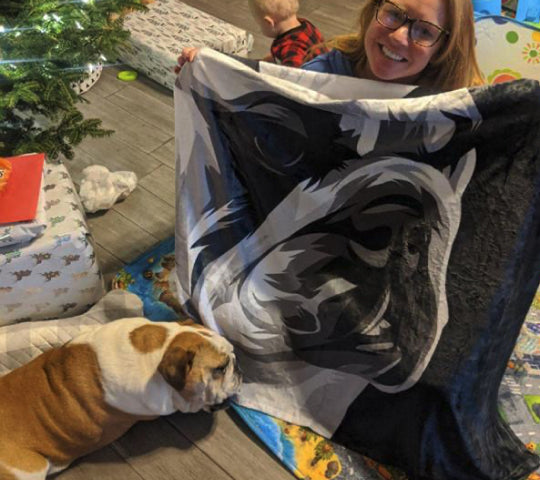
COLLECTION WORTH EVERY PENNY
BEST SELLERS
-
Woofy Single Color Custom Pet Blanket
![Woofy Single Custom Pet Blanket – Woof Blanket]()
- -41%
BlanketsSHOP NOW- Regular price
- from $64.95
- Sale price
- from $64.95
- Regular price
-
$109.95 - Unit price
- per
Sold out -
Exclusive Christmas Custom Pet Blanket
![Exclusive Custom Pet Blanket]()
- -39%
BlanketsSHOP NOW- Regular price
- from $69.95
- Sale price
- from $69.95
- Regular price
-
$114.95 - Unit price
- per
Sold out -
Christmas Custom Pet Blanket
![Christmas Custom Pet Blanket - Custom Dog Blankets]()
- -40%
BlanketsSHOP NOW- Regular price
- from $69.95
- Sale price
- from $69.95
- Regular price
-
$115.95 - Unit price
- per
Sold out -
Watercolor Pet Portraits
![]() SHOP NOW
SHOP NOW- Regular price
- from $59.95
- Sale price
- from $59.95
- Regular price
-
- Unit price
- per
Sold out -
Woofy Christmas Custom Dog Blanket
![Woofy Christmas Custom Dog Blanket]()
- -39%
BlanketsSHOP NOW- Regular price
- from $69.95
- Sale price
- from $69.95
- Regular price
-
$114.95 - Unit price
- per
Sold out -
Modern Pet Owner Portrait
![]()
- -32%
CanvasSHOP NOW- Regular price
- from $84.95
- Sale price
- from $84.95
- Regular price
-
$124.95 - Unit price
- per
Sold out -
Woof Splash Custom Pet Blanket
![Woof Splash Custom Pet Blanket]()
- -39%
BlanketsSHOP NOW- Regular price
- from $69.95
- Sale price
- from $69.95
- Regular price
-
$114.95 - Unit price
- per
Sold out -
The Admiral - Custom Pet Portrait
![The Admiral - Custom Pet Portrait Online]()
- NEW
- -25%
CanvasSHOP NOW- Regular price
- from $59.95
- Sale price
- from $59.95
- Regular price
-
$79.95 - Unit price
- per
Sold out -
Wings of Loyalty - Custom Pet Portrait
![]()
- NEW
CanvasSHOP NOW- Regular price
- from $59.95
- Sale price
- from $59.95
- Regular price
-
- Unit price
- per
Sold out -
Pet Memorial Custom Photo Collage Blanket
![Personalized pet memorial quilt with photos]()
- -41%
BlanketsSHOP NOW- Regular price
- from $64.95
- Sale price
- from $64.95
- Regular price
-
$109.95 - Unit price
- per
Sold out -
Celestial Paws - Custom Pet Portrait
![]() CanvasSHOP NOW
CanvasSHOP NOW- Regular price
- from $59.95
- Sale price
- from $59.95
- Regular price
-
- Unit price
- per
Sold out -
The Loyal Soul - Custom Pet Portrait
![]()
- NEW
SHOP NOW- Regular price
- from $59.95
- Sale price
- from $59.95
- Regular price
-
- Unit price
- per
Sold out -
Cartoonized Pet Portraits (New)
![Cartoonized Pet Custom Portraits Online]()
- -36%
SHOP NOW- Regular price
- from $59.95
- Sale price
- from $59.95
- Regular price
-
$93.95 - Unit price
- per
Sold out -
The French Sailor - Custom Pet Portrait
![]()
- -25%
CanvasSHOP NOW- Regular price
- from $59.95
- Sale price
- from $59.95
- Regular price
-
$79.95 - Unit price
- per
Sold out -
The Policeman - Custom Pet Portrait
![]()
- NEW
- -25%
CanvasSHOP NOW- Regular price
- from $59.95
- Sale price
- from $59.95
- Regular price
-
$79.95 - Unit price
- per
Sold out -
The General - Custom Pet Portrait
![]()
- NEW
- -25%
CanvasSHOP NOW- Regular price
- from $59.95
- Sale price
- from $59.95
- Regular price
-
$79.95 - Unit price
- per
Sold out -
Woof Love Custom Pet Blanket
![Woof Love Custom Pet Blanket]()
- -39%
BlanketsSHOP NOW- Regular price
- from $69.95
- Sale price
- from $69.95
- Regular price
-
$114.95 - Unit price
- per
Sold out -
Summer Time Custom Pet Blanket
![Summer Time Custom Pet Blanket]()
- -39%
BlanketsSHOP NOW- Regular price
- from $69.95
- Sale price
- from $69.95
- Regular price
-
$114.95 - Unit price
- per
Sold out -
The Ambassador - Custom Pet Portrait
![The Ambassador - Custom Pet Portrait Online]()
- NEW
- -25%
CanvasSHOP NOW- Regular price
- from $59.95
- Sale price
- from $59.95
- Regular price
-
$79.95 - Unit price
- per
Sold out -
Fall In Love Custom Pet Blanket
![Fall In Love Custom Dog Blanket]()
- NEW
- -39%
BlanketsSHOP NOW- Regular price
- from $69.95
- Sale price
- from $69.95
- Regular price
-
$114.95 - Unit price
- per
Sold out -
The Classy Lady - Custom Pet Portrait
![The Classy Lady]()
- NEW
- -25%
CanvasSHOP NOW- Regular price
- from $59.95
- Sale price
- from $59.95
- Regular price
-
$79.95 - Unit price
- per
Sold out -
The Duke - Custom Pet Portrait
![The Duke - Custom Pet Portrait]()
- NEW
- -25%
CanvasSHOP NOW- Regular price
- from $59.95
- Sale price
- from $59.95
- Regular price
-
$79.95 - Unit price
- per
Sold out -
Dog In Suit- Custom Pet Portrait
![Dash Dog In Suit- Custom Pet Portrait Online]()
- NEW
- -25%
CanvasSHOP NOW- Regular price
- from $59.95
- Sale price
- from $59.95
- Regular price
-
$79.95 - Unit price
- per
Sold out -
The Princess - Custom Pet Portrait
![]()
- NEW
- -25%
CanvasSHOP NOW- Regular price
- from $59.95
- Sale price
- from $59.95
- Regular price
-
$79.95 - Unit price
- per
Sold out -
Modern Pet Portrait with One Mug
![Modern Pet Portrait with One Mug]()
- -25%
Print MaterialSHOP NOW- Regular price
- from $99.95
- Sale price
- from $99.95
- Regular price
-
$133.95 - Unit price
- per
Sold out -
The Aristocrat - Custom Pet Portrait
![The Aristocrat - Custom Pet Portrait At Best Price]()
- NEW
- -25%
CanvasSHOP NOW- Regular price
- from $59.95
- Sale price
- from $59.95
- Regular price
-
$79.95 - Unit price
- per
Sold out -
Single Color Custom Blanket with 1 Mug
![Single Color Custom Blanket with 1 Mug]() BlanketsSHOP NOW
BlanketsSHOP NOW- Regular price
- from $99.95
- Sale price
- from $99.95
- Regular price
-
- Unit price
- per
Sold out -
Single Color Custom Blanket with 2 Pillows
![Single Color Custom Pet Blanket with 2 Pillows]()
- -21%
BlanketsSHOP NOW- Regular price
- from $99.95
- Sale price
- from $99.95
- Regular price
-
$125.95 - Unit price
- per
Sold out -
The Dog in Suit Custom Pet Mug
![]()
- -20%
MugsSHOP NOW- Regular price
- $39.95
- Sale price
- $39.95
- Regular price
-
$49.95 - Unit price
- per
Sold out -
Angel Custom Pet Mug
![]()
- -20%
MugsSHOP NOW- Regular price
- $39.95
- Sale price
- $39.95
- Regular price
-
$49.95 - Unit price
- per
Sold out -
This Human Belongs To - Custom Pet Mug
![]()
- NEW
- -20%
MugsSHOP NOW- Regular price
- $39.95
- Sale price
- $39.95
- Regular price
-
$49.95 - Unit price
- per
Sold out -
It's Not Dog Hair Custom Pet Mug
![]()
- NEW
- -20%
MugsSHOP NOW- Regular price
- $39.95
- Sale price
- $39.95
- Regular price
-
$49.95 - Unit price
- per
Sold out -
My Dog Is My Valentine Custom Pet Mug
![]()
- NEW
- -20%
MugsSHOP NOW- Regular price
- $39.95
- Sale price
- $39.95
- Regular price
-
$49.95 - Unit price
- per
Sold out -
3 Photos With Message Custom Pet Mug
![]()
- NEW
- -20%
MugsSHOP NOW- Regular price
- $39.95
- Sale price
- $39.95
- Regular price
-
$49.95 - Unit price
- per
Sold out -
My Valentine Has Four Legs- Personalized Mugs
![]()
- NEW
- -20%
MugsSHOP NOW- Regular price
- $39.95
- Sale price
- $39.95
- Regular price
-
$49.95 - Unit price
- per
Sold out -
Dog Mamma Custom Pet Coffee Mug
![]()
- -20%
MugsSHOP NOW- Regular price
- $39.95
- Sale price
- $39.95
- Regular price
-
$49.95 - Unit price
- per
Sold out -
Uncle Sam - Custom Pet Portrait
![]()
- NEW
- -25%
CanvasSHOP NOW- Regular price
- from $59.95
- Sale price
- from $59.95
- Regular price
-
$79.95 - Unit price
- per
Sold out -
The Revolutionary Emperor - Custom Pet Portrait
![]()
- NEW
- -25%
CanvasSHOP NOW- Regular price
- from $59.95
- Sale price
- from $59.95
- Regular price
-
$79.95 - Unit price
- per
Sold out -
The Princess Paws - Custom Pet Portrait
![]()
- -25%
CanvasSHOP NOW- Regular price
- from $59.95
- Sale price
- from $59.95
- Regular price
-
$79.95 - Unit price
- per
Sold out -
The Dark Crusader Knight - Custom Pet Portrait
![]()
- -25%
CanvasSHOP NOW- Regular price
- from $59.95
- Sale price
- from $59.95
- Regular price
-
$79.95 - Unit price
- per
Sold out
